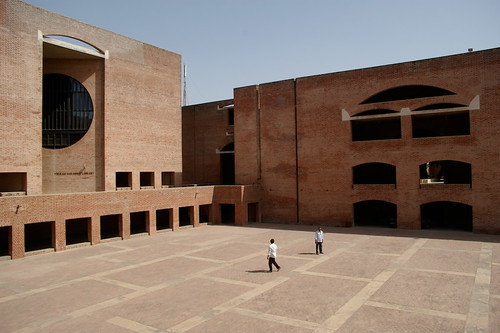The funda of farmer suicides
August 16, 2010 Leave a comment
In recent years, there has been an increased awareness of the unfortunate rise of farmer suicides in rural India. By most estimates, about 200,000 farmers have committed suicide in the last 20 years, with the recent years averaging more than 17,000 a year. Grim statistics indeed. These suicides have largely been concentrated in the Indian agrarian states of Maharashtra, Andhra Pradesh, Karnataka, Madhya Pradesh and Goa.
“India lives in her villages“, as Mahatma Gandhi didn’t say. About 73% of the Indian population still lives in India, and a large majority of the folks are dependent on agriculture for subsistence. Many of these farmers are poor, manual workers and uneducated- very poorly equipped to compete in the world economy as they are.
The base post on farmer suicides was written by P Sainath, who is the editor for The Hindu, a big and respectable Indian newspaper. Through his award-winning reporting, he brought attention to this subject. Here is a great update post from Sainath on this.
So why are the farmers committing suicide? I am going to focus on two competing, yet reconcilable, narratives that have been put forward. One represents the extremely successful activist community, spearheaded by Vandana Shiva, and the other representing the views of a broader “economist” community.
Simply put, the activist viewpoint is that the greedy multi-national seed and chemical companies have colluded to create monstrous patented and genetically modified monoculture of seeds that cost the farmers their livelihoods, land and, ultimately, lives. Meanwhile, the global trade in seeds creates conditions that allows heavily subsidized American grain to rush into the market, lowering the effective rates. In other words, the rapacious Americans are to blame. This viewpoint has been very eloquently articulated by Vandana Shiva, who has appeared Al Gore-like in her presentations to a shamed-western-media. Here are a couple of great reads: Vandana-on-HuffPost, and here’s an audio post.
Rapid increase in indebtedness is at the root of farmers’ taking their lives. Debt is a reflection of a negative economy. Two factors have transformed agriculture from a positive economy into a negative economy for peasants: the rising of costs of production and the falling prices of farm commodities. Both these factors are rooted in the policies of trade liberalization and corporate globalization.
The other viewpoint takes a more scholarly approach to the grim data. The best point of view I came across was this research published by International Food Policy Research Institute. I initially assumed that this is an industry-funded-one-sided piece, meant to allow greedy seed and fertilizer companies to assert their point of view. I was wrong. This is a well researched and balanced piece of work. It combines a meta-analysis of several other lines of research. The truth, in their opinion, is more nuanced, though no less grim. The multinational seed companies are, indeed, selling patented and GM seeds that are terribly expensive. The seeds give much higher yields with a careful selection of chemicals, and under irrigated conditions. In India, the farmers are uneducated on their proper use, and still depend on the monsoons for irrigation. This means that the farmers take debt to buy seeds that are essentially a gamble. The yields turn out to be poorer than the costs would justify. Crop failure results infrequently. This created a vicious cycle which ends, sadly, in the farmers committing suicides. Here is the 64-page report, which I recommend highly. Here is the chart that lays out the situation brilliantly on page 45. Too bad they aren’t as eloquent as Vandana Shiva!


Comments